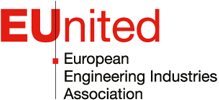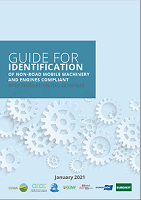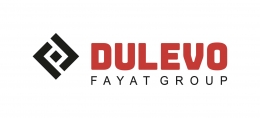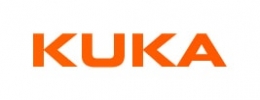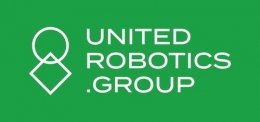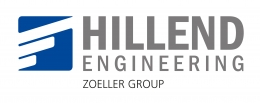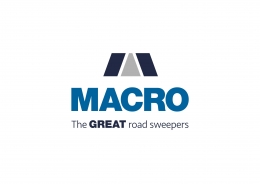
May 2015
Robots Out of the Cage - What Role Should EU Policy Play?
EUnited Robotics at a roundtable discussion with the European Parliament.
 |
Robotics represents one the most relevant technological innovations of the current century, a revolution that will impact the economy and society in many ways. In this respect, human-robot collaboration is one of the topics that has captured everyone's attention lately, including the European Parliament. On April 21st, 2015, Mady Delvaux-Stehres, a member of the European Parliament and Vice-Chair of the Legal Committee, organized a roundtable meeting on this topic to which EUnited Robotics was invited.
The European Commission has identified robotics as one of the flagship initiatives within Horizon 2020 and the core of manufacturing progress and economic growth. First generation robots were contained in a cage to avoid contact with humans. However, as the new generation of robots is starting to move out of the cage to directly interact with humans, it is no surprise that topics like human-robot collaboration and robots' impact on jobs have been moving up on the agenda. Robots leaving their cages behind means they can enter new domains and perform more diverse tasks which will profoundly impact the societal structure and reshape the labor market. It is not about replacing human workers, but to do it smarter together with humans, e.g. supporting the ageing workforce and the demographic shift and to increase the quality of work. But of course, new roles for robots obviously raise legal, moral and ethical questions that need to be tackled by the society.
The European Parliament will be the first in the world to reflect on a legal framework for robotics.
So far, EU regulations are either unclear or non-existing in the filed of robotics since technology usually moves faster than decision-makers do. Up to now, decision-makers have shown little interest in addressing legal challenges around robotics. No national parliament has specifically addressed these challenges. By creating a specific Working Group on the legal implications of robotics, the European Parliament will be the first parliament to reflect on an appropriate framework for robotics that will on the one hand foster competitiveness and innovation of Europe's robotics industry while at the same time protecting workers' and consumers' fundamental rights.
It will not be about creating one universal robot law for Europe, but rather addressing these issues for the various and very different application domains like self-driving cars, drones or medical applications.
Mady Delvaux-Stehres summarized it best in her invitation letter to the participants "Don't let the robotics revolution be a missed opportunity for Europe. Now is the right time to decide how we would like robotics to impact our society by steering the EU towards an appropriate and balanced legal framework ... Once we have a better understanding of the state of play, have a clearer view of the outlook, we are in a position to discuss the role for EU policy".
EUnited Robotics will provide the necessary input to contribute to the European Parliament's initiative as well as the discussion about many opportunities and challenges that come with technological change.
Industrious Brussels EU District, Avenue des Arts 6-9, 1210 Brussels, Belgium, +32 490 57 57 65
Transparency Register number: 0289344948-82
